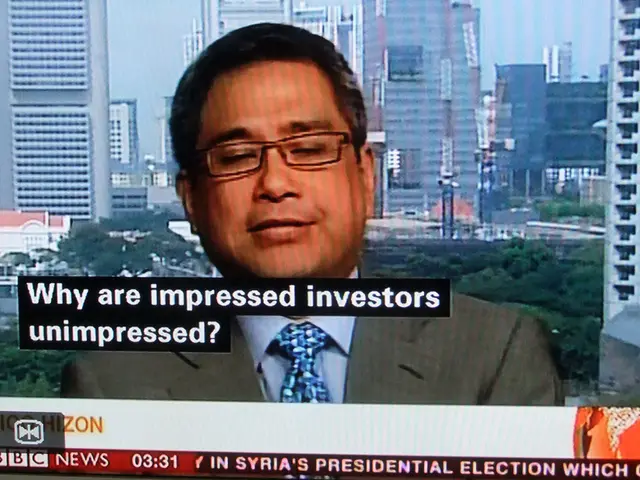89-Year-Old Pioneer of Secrecy Exposure, John L. Young – Known for Establishing Wikileaks Precursor – Passes Away
John Young, a Pioneering Champion of Digital Transparency, Bids Adieu
In the bustling city of New York, on the 28th of March, John L. Young, a silent titan of the digital age and co-founder of the trailblazing transparency platform Cryptome, took his final bow. His passing, shrouded in silence, starkly contrasts the earth-shattering disclosures that defined his groundbreaking work.
The quiet announcement of his departure came from Archinect, a respected publication for architects, on June 4th:
"John L. Young, architect and the co-founder (with his wife Deborah Natsios) of Cryptome, passed away in March," the publication wrote, shedding little light on the circumstances. According to The New York Times, he breathed his last in a rehabilitation facility in Manhattan.
Decades prior to the emergence of the concept of organized digital leaks, Young was among the first to grasp the profound potential of the fledgling internet. He foresaw its power to publish classified government documents online, arming citizens with knowledge and empowering them to hold those in power accountable for their actions.
Long before WikiLeaks made its debut, Cryptome, founded in June 1996, stood as a relentless document publisher. For over a decade, it offered a platform for tens of thousands of documents "banned by governments worldwide, particularly those related to freedom of expression, privacy, and cryptology," as per the site's creators. John, affectionately known as the founder of Cryptome's "free public library," was a true forerunner of WikiLeaks, fearlessly publishing raw government documents, both classified and unclassified.
From exposing photographs of Barack Obama's security team to publishing detailed plans of sensitive facilities, these were Cryptome's revelations, not WikiLeaks'. A pivotal moment came in 2011 when Cryptome made international headlines by publishing the unredacted version of the 251,000 U.S. diplomatic cables that WikiLeaks had obtained in 2010. Where WikiLeaks and its media partners had only released a few thousand of these documents with meticulous redactions of sensitive information, Cryptome courageously published the unredacted version, sparking controversy and debate over the potential risks and benefits.
Despite WikiLeaks being a direct competitor, Young staunchly defended Julian Assange during his protracted standoff with the U.S. government, particularly in 2020. With the U.S. authorities seeking Assange's extradition, accusing him of offenses tantamount to treason, Young viewed this as persecution and dauntlessly challenged the U.S. government to go after him as well.
"I published on Cryptome.org unredacted diplomatic cables on September 1, 2011, under the URL https://cryptome.org/z/z.7z, and that publication remains available at the present," he declared in a defiant statement to the Department of Justice in 2020, a copy of which is available on Cryptome.org. "Since my publication on Cryptome.org of the unredacted diplomatic cables, no U.S. law enforcement authority has notified me that this publication of the cables is illegal, consisting of or contributing to a crime in any way, nor have they asked for them to be removed."
Cryptome's understated design showcases links to both hosted documents and external articles. Young, a Manhattan architect who also served as the site's administrator, humbly described himself as an "amateur" whistleblower, distinguishing himself from those with a greater purpose. It is perhaps his modest demeanor that set him apart; when Julian Assange himself approached Young to join WikiLeaks, Young respectfully declined.
It is evident that Young was not favored by U.S. intelligence agencies, who frequently criticized him for publishing highly sensitive documents, including lists of agents' names. His pioneering website also faced constant scrutiny, enduring "several times a day" attacks from computer robots designed to analyze the content of its pages, a testament to the persistent threat perceived by those whose secrets he exposed.
John L. Young, a left-wing activist who graduated from Columbia University, leaves behind his wife (Natsios) and three children from his first marriage.
Young's work paved the way for digital transparency, demonstrating how digital archives could be leveraged to expose wrongdoing, empower citizens, and demand greater accountability from institutions—principles that continue to resonate in contemporary debates over privacy, security, and transparency in the digital era.
In the digital age, John Young, co-founder of Cryptome, a platform known for publishing documents related to privacy, cryptology, and freedom of expression, fearlessly published unredacted diplomatic cables, sparking debates over transparency and accountability. His work, a precursor to WikiLeaks, served as a blueprint for digital transparency, inspiring discussions on privacy, security, and accountability in modern technology and politics.








